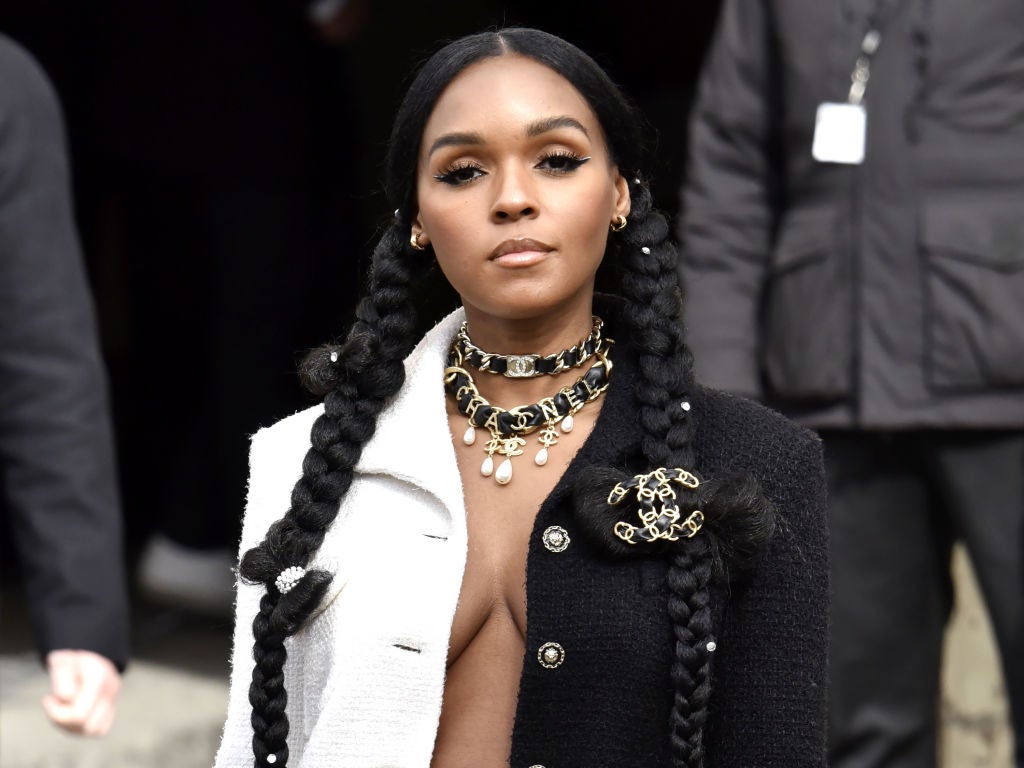
Janelle Monáe has always been one to denounce racism, sexism — all of the “isms,” in fact.
So it’s no surprise that the topic of race was discussed during her recent interview with the Hollywood Reporter Roundtable, along with Jennifer Aniston, Zendaya, Rose Byrne, and Helena Bonham. And Monáe had quite a few things to say.
“In the same ways that we have been marching, we have been screaming that Black Lives Matter, I’m asking of my White friends or those who consider themselves supporters of me and us during this time to have those conversations around White supremacy and around why your ancestors started chattel slavery,” she said. “Have those tough conversations of why we are even saying Black Lives Matter as though Black people are objects and not subjects to study until the end of time. Have those conversations around how you dismantle systemic racism.”
And because art often imitates life, in her upcoming horror film Antebellum, Monáe plays an author who — like herself — speaks out about systemic racism. However, things take a twist when she finds herself living as a slave. The triggers of working on the plantation sparked emotional trauma for Monáe, who discussed the “weight” of the responsibility in depicting our ancestors.
“Oh, I brought all of my ancestors home with me,” she explained. “This is a project that is so of the times, and it was not going to be a yes for me because I knew the responsibility and the weight of it and I knew what this character was going to have to go through physically and emotionally.”
For any one of us, there would be a mixed bag of emotions in portraying a role such as this. And for Monáe, those emotions were bound to have a ripple effect even after the cameras stopped rolling. “I felt everything. There were just certain conversations even at craft services that if I heard would be triggering for me. I couldn’t even talk to my family sometimes. It was kind of unhealthy when I think back.”
Monáe also discussed the importance of representation as a Black queer woman of color — in not just Antebellum but all of her projects. I’ve made it a point in my career to make sure that the world knows we’re not monolithic. We can do the math that gets men into space [the basis for Hidden Figures] and we can also be in the ghettos in Moonlight, and it was super important that those were the first roles I took.
She continues, “Even in music, I’ve tried my best to walk my truth as a queer Black woman growing up in America and what that means. Representation is important. Our voices on screen, our presence on screen, it’s all super important. I’m also at a point where I want the freedom like all of my favorite actors who get an opportunity to do fantasy, sci-fi, drama, all these things. I want to see more scripts where you’re writing for the human, you’re not pushing me to be a stereotype of what you think Blackness is.”
We stan a Black queen who continues to represent for her people.